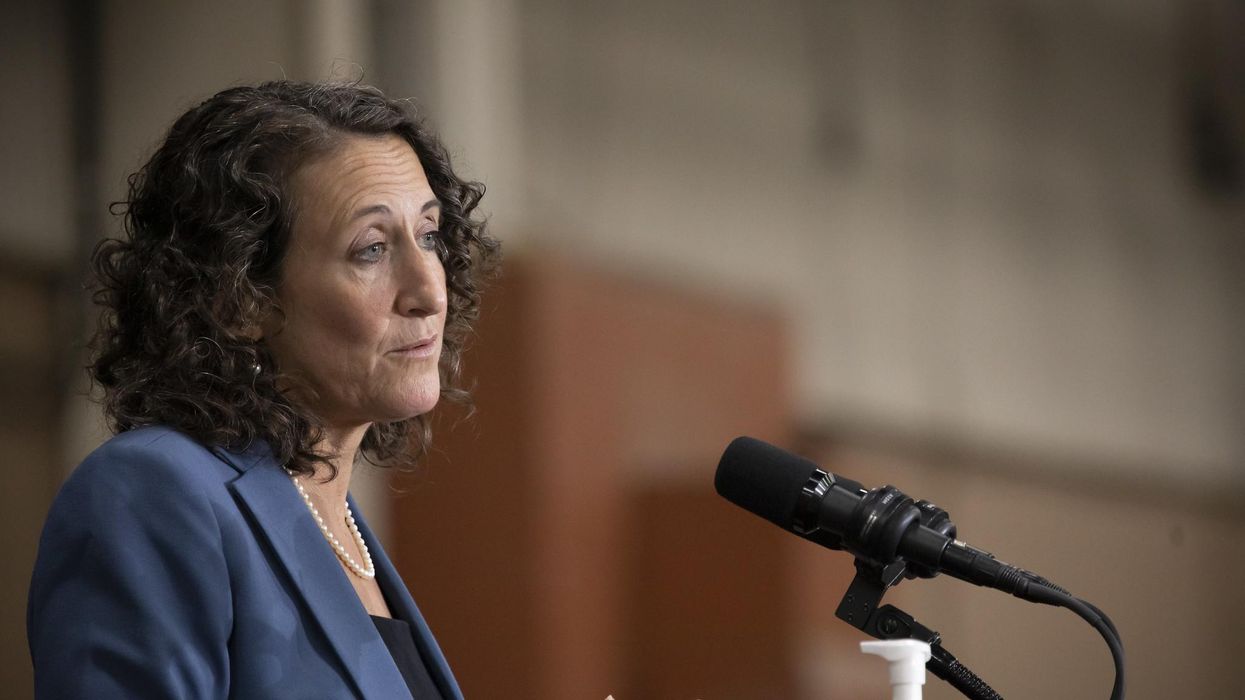The top elections official in Pennsylvania, who became one of Donald Trump's most prominent villains and scapegoats as he sought to reverse his defeat, has been forced to resign.
But the sudden ouster of Secretary of State Kathy Boockvar by Gov. Tom Wolf, a fellow Democrat, has nothing to do with how she ran the presidential contest in one of last year's biggest tossup states. Instead, she is taking the fall for how her staff overlooked another pressing and high-profile matter during the height of the campaign.
The mistake will delay for at least two years a statewide vote on whether survivors of sexual abuse should be permitted to sue their perpetrators and institutions that covered up the crimes which occurred decades ago.
Advocates were planning for such a referendum on the May primary ballot — but now it won't happen, because of a blunder that came to light only in recent days: The Department of State forgot to place the legally required advertisements in newspapers last fall describing the proposed state constitutional amendment, which would give adults who kept silent about their abuse when they were children a special two-year window to file lawsuits.
Boockvar's departure "has nothing to do with the administration of the 2020 election, which was fair and accurate," Wolf said in announcing the firing on Monday. "The delay caused by this human error will be heartbreaking for thousands of survivors of childhood sexual assault, advocates and legislators, and I join the Department of State in apologizing to you."
The Republican-majority Legislature will now be pressed to pass fresh legislation, over the objections of the state's Roman Catholic bishops and the insurance industry, to revive the referendum — but not before 2023. The Department of State's bureaucratic failing was first reported last week by Spotlight PA.
"I've always believed that accountability and leadership must be a cornerstone of public service," Boockvar said in a statement. "I accept the responsibility on behalf of the department."
Boockvar, 52, had become one of the nation's most prominent secretaries of state in just two years on the job and was named by her colleagues to be a spokeswoman on many of the contentious matters related to conducting the 2020 election during the pandemic.
When she took office the state had just enacted the biggest overhaul to its election laws in 80 years. And so it was her responsibility to implement the transition to no-excuse absentee voting, an expanded voter registration timetable, and the purchase and deployment of new voting equipment across all of the state's 67 counties. Not all that work had been completed before the Covid-19 pandemic started, and so the spring primaries were marred by criticism about confusing rules and delayed vote counts.
Boockvar began drawing Trump's ire in the fall, when she decreed that mailed ballots postmarked on time but arriving three days late would be counted. The decision withstood a series of Republican legal challenges on the grounds she had claimed power reserved for the legislatures.
"We are winning Pennsylvania big, but the PA Secretary of State just announced that there are 'Millions of ballots left to be counted," Trump falsely tweeted the day after Election Day.
In the end, Boockvar's decision preserved the votes inside only about 10,000 tardy envelopes, and President Biden carried the state and its pivotal 20 electoral votes by a full percentage point, or 82,000 votes.
But after that imbroglio subsided, she became the face of the state's ultimately successful defenses against a torrent of lawsuits by the defeated president's campaign and his allies. One of them was successful, holding that Boockvar was moving to exceed her authority on an obscure matter involving ballot envelope signatures, but that ruling came before any of the disputed ballots were counted.
All the others died for lack of evidence or legal foundation, although one made it as far as the Supreme Court before being dismissed. That suit, challenging the legality of switching to no-excuse absentee voting in the state, was at the heart of why Republican Sen. Josh Hawley of Missouri objected to counting Pennsylvania's electors on Jan. 6, shortly after a mob of Trump supporters stormed the Capitol. The Senate voted 92-7, and the House 282-138, to accept Biden's victory in the state.
Boockvar has continued to endure withering criticism from Republicans in Harrisburg, many of whom still profess support for Trump's conspiracy theories about voting irregularities and assert without evidence that her incompetence allowed widespread cheating to go unchallenged.
Just last week, Boockvar told a state House hearing on the election that "it is time for truth" and that an "assault on facts" must end.




















Trump & Hegseth gave Mark Kelly a huge 2028 gift